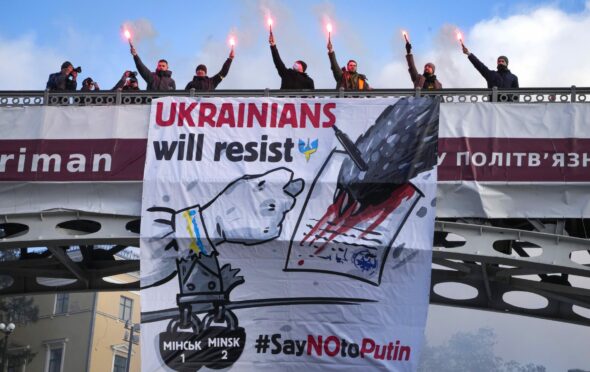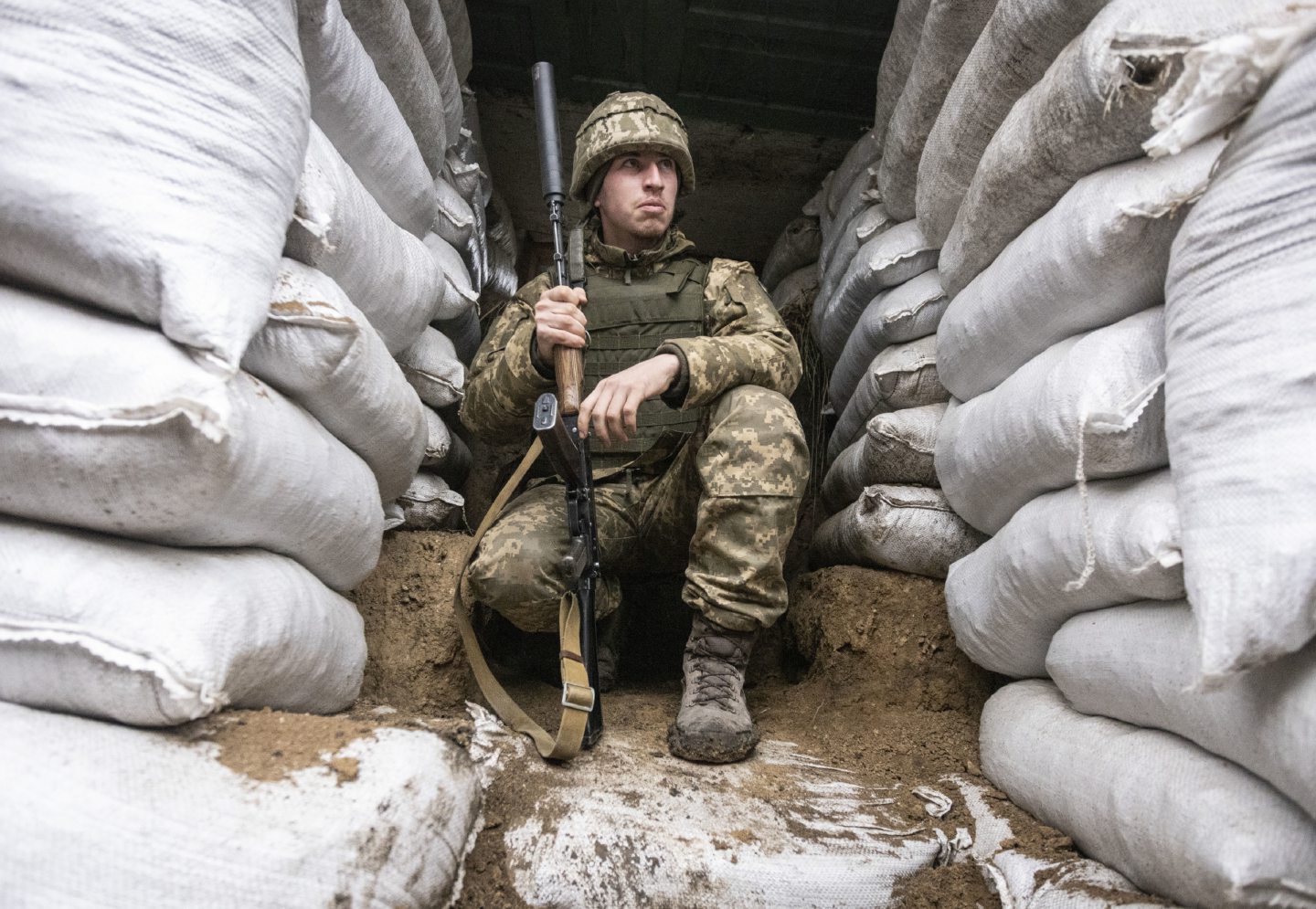
More than 100,000 Russian troops could invade Ukraine within 72 hours after high-stakes talks between US president Joe Biden and Russian president Vladimir Putin failed to reach an agreement between the two sides yesterday afternoon.
In an hour-long call, Biden told Putin that an invasion would “produce widespread human suffering and diminish Russia’s standing”.
Biden said the US remained committed to diplomacy, but was “equally prepared for other scenarios”.
According to US intelligence sources, Russia is preparing to carry out an invasion on Wednesday despite official denials that it plans military action against its neighbour.
Russia now has an estimated 130,000 troops massed in the border region and in neighbouring Belarus, close to the strength some analysts believe would be needed to mount a full-scale invasion.
The US has picked up intelligence that Russia is looking at Wednesday as a target date, with missile strikes and cyber attacks to precede an invasion.
Thousands of Britons living in Ukraine have been urged to leave the country immediately. over growing fears of a Russian invasion.
UK armed forces minister James Heappey said, unlike when the Taliban seized Kabul, the RAF would not be carrying out evacuations in the event of war in Ukraine.
The decision has been taken in part because aerial warfare would be likely in the area.
Heappey said: “There will be a big difference between what they may have seen on their TV screens in Afghanistan over the summer and what may happen over the next week or so.
“The Royal Air Force will not be in a position to go in and fly people out so they need to leave now by commercial means or drive out of Ukraine into a neighbouring country.”
He also said British troops helping to train Ukrainians on the anti-tank missiles supplied by the UK will be leaving the country this weekend.
He said: “All of them will be withdrawn. There will be no British troops in Ukraine if there is to be a conflict there.”
Biden’s national security adviser, Jake Sullivan, also urged all Americans in Ukraine to leave, warning they should not expect the US military to rescue them after a Russian invasion.
He told reporters at the White House: “Yes, it is an urgent message because we are in an urgent situation.
“Russia has all the forces it needs to conduct a major military action. Russia could choose, in very short order, to commence a major military action against Ukraine.”
Biden has said the US military will not enter a war in Ukraine, but has promised severe economic sanctions against Moscow.
He has also bolstered the American military presence in Europe, ordering an additional 3,000 US troops to Poland, on top of 1,700 on their way there, to reassure allies.
Putin has repeatedly insisted that Russia has no intention of carrying out an invasion, but is demanding that the West keeps Ukraine and other former Soviet countries out of Nato.
Russia also wants Nato to refrain from deploying weapons near its border and to roll back alliance forces from Eastern Europe – demands rejected by the West.
Before talking to President Biden yesterday afternoon, Putin had a phone call with French President Emmanuel Macron, who met with him in Moscow last week to try to resolve the biggest security crisis between Russia and the West since the Cold War.
A Kremlin summary of the call suggested that little progress was made towards cooling down the tensions.
For months, the US and other Nato allies have been warning of a massive Russian military build-up on the Ukrainian border.
Tobias Ellwood, the chairman of Westminister’s defence select committee, called for British-led Nato divisions to be in the country.
The Conservative MP said: “An invasion is imminent.
“Once that happens, because of the grain that comes out of Ukraine for the world, that will affect food prices across the world.
“Oil and gas prices will be affected as well, and European security will then be threatened further, so we have to ask ourselves, what should we do instead?
“What are the calculations, and yes, there is this looking Putin in the eye wondering what would happen.
“This is our Cuban missile crisis moment”.
He said the consequences of allowing Ukraine to fall would see a “new era of instability with a Russia and China axis developing” while the West is “shrinking in size” and authoritarianism is on the rise.
Russia and Ukraine have been locked in a bitter conflict since 2014, when Ukraine’s Kremlin-friendly leader was driven from office by a popular uprising.
Moscow responded by annexing Crimea and then backing a separatist insurgency in eastern Ukraine, where fighting has killed more than 14,000 people.
A 2015 peace deal brokered by France and Germany helped halt large-scale battles, but regular skirmishes continued.

Enjoy the convenience of having The Sunday Post delivered as a digital ePaper straight to your smartphone, tablet or computer.
Subscribe for only £5.49 a month and enjoy all the benefits of the printed paper as a digital replica.
Subscribe © AP
© AP